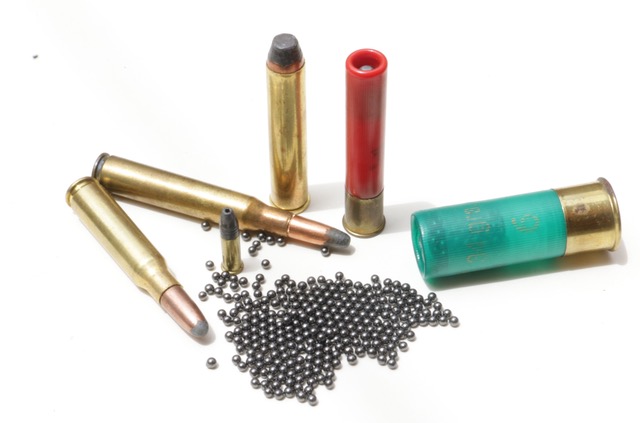Scientists urge Spain's Ministry of Agriculture, Fisheries and Food to support a total and unconditional ban on lead ammunition in hunting

In February 2025, the European Chemicals Agency (ECHA) published a report that laid the groundwork for an EU-wide proposal to restrict the use of lead in ammunition for all forms of hunting and outdoor sport shooting, as well as in fishing weights used in recreational angling. However, several member states, including Spain, have submitted objections seeking modifications to the proposal.
Spain’s Ministry of Agriculture, Fisheries and Food (MAPA) has raised two major concerns that have alarmed the scientific community. First, the Ministry argues that the proposed timelines for phasing out lead ammunition are too short and has requested an extension of 5 to 10 years for full implementation. Secondly, MAPA has asked that lead ammunition continue to be allowed for population control of wild boar, citing issues of availability, cost, and safety, particularly in areas where boar densities are high and pose health risks.
The scientists behind the letter acknowledge that some transition period may be reasonable, but stress that extending it beyond five years is unjustified. They emphasize that “safe and effective alternatives are already available on the market and are being used by hunters worldwide, including in Spain”
They express even greater concern over the second objection, calling it “especially troubling and unjustifiable.” Allowing lead for population control while banning it for sport hunting would create an inconsistency that “would severely hinder the effective enforcement of the restriction.” It would also place the authorities in the difficult position of having to “evaluate and determine when a hunting action qualifies as population control or as standard recreational hunting,” particularly when such activities are carried out by the same hunters.
The letter, which has also been sent to the Ministry for the Ecological Transition and the Demographic Challenge (MITECO), was drafted by Dr. Rafael Mateo (Environmental Diagnosis and Water Studies Institute, IDAEA-CSIC), Dr. Mónica Martínez-Haro (Wildlife Toxicology Research Group, IREC – CSIC, UCLM, JCCM), and Dr. José A. Donázar (Doñana Biological Station, EBD-CSIC) — three leading researchers from Spain’s National Research Council (CSIC) with extensive expertise in the environmental, wildlife, and public health impacts of lead.
Lead toxicity is well-established and has long been recognized as “one of the most harmful metals for human, animal, and environmental health.” No safe level of exposure to lead exists, which has led to its removal from many applications and its replacement with less hazardous materials. Both the European Food Safety Authority (EFSA) and the Spanish Agency for Food Safety and Nutrition (AESAN) have issued clear warnings stating that “children and pregnant women should not consume game meat due to health risks posed by lead residues in ammunition.” Yet the use of lead persists in hunting, sport shooting, and fishing.
The environmental consequences are severe. Terrestrial hunting with lead ammunition disperses an estimated 14,000 tonnes of lead annually across “forests and farmland in Europe.” This lead “will not disappear; it will remain in the environment, and once shot pellets break down, they will continue contaminating soils, water, and the food web.” Wildlife is also heavily affected, especially bird species. In Spain, lead poisoning has been diagnosed in at least 13 species of birds of prey, all of which are strictly protected.
The letter underscores the urgency of a total ban, warning that “the longer it takes to prohibit lead ammunition, the more contaminated our environment will become.”
Given this overwhelming body of evidence, and building on ECHA’s own risk assessment report on the health and environmental hazards of lead in hunting, sport shooting, and fishing, the three lead authors and more than 130 co-signing scientists — representing the vast majority of experts in Spain studying lead’s impact on biodiversity — declare their “full support for the draft ‘Amendment to Annex XVII of Regulation (EC) No. 1907/2006 of the European Parliament and of the Council concerning the Registration, Evaluation, Authorisation and Restriction of Chemicals (REACH) regarding lead in ammunition and fishing weights,’ as it has been presented.”
Their position is unequivocal: “no moratoriums on enforcement and, above all, no exceptions such as continued use for population control.”
The letter, available in Spanish in full at this link, is an urgent call to protect public health, wildlife, and the environment. It urges MAPA to reconsider its objections and align with scientific evidence to ensure a truly effective and uncompromising lead ban.